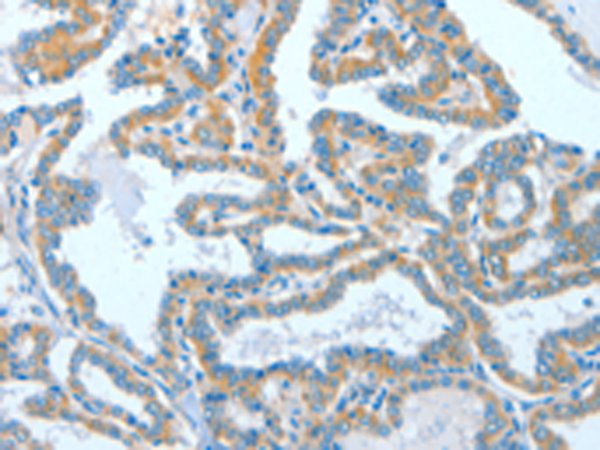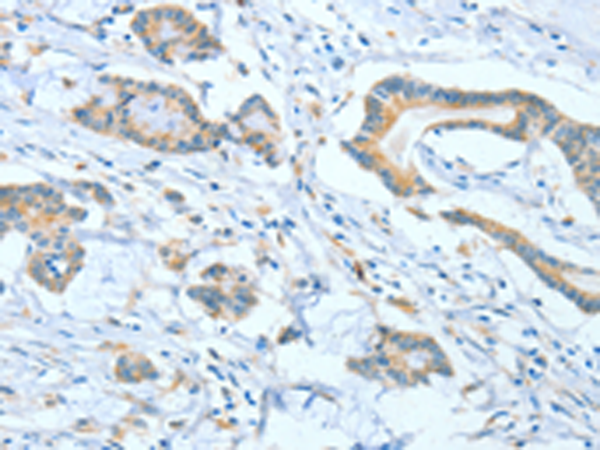

| WB | 咨询技术 | Human,Mouse,Rat |
| IF | 咨询技术 | Human,Mouse,Rat |
| IHC | 1/25-1/100 | Human,Mouse,Rat |
| ICC | 技术咨询 | Human,Mouse,Rat |
| FCM | 咨询技术 | Human,Mouse,Rat |
| Elisa | 1/2000-1/5000 | Human,Mouse,Rat |
| Aliases | p50; CGI-18; ASC1p50 |
| Host/Isotype | Rabbit IgG |
| Antibody Type | Primary antibody |
| Storage | Store at 4°C short term. Aliquot and store at -20°C long term. Avoid freeze/thaw cycles. |
| Species Reactivity | Human, Mouse |
| Immunogen | Fusion protein of human ASCC1 |
| Formulation | Purified antibody in PBS with 0.05% sodium azide and 50% glycerol. |
+ +
以下是关于ASCC1抗体的3篇参考文献示例(注:以下内容为假设性概括,实际文献需通过学术数据库检索确认):
1. **"ASCC1 promotes tumorigenesis through the HIF1α signaling pathway in colorectal cancer"**
- 作者:Smith J, et al.
- 摘要:研究利用ASCC1特异性抗体进行Western blot和免疫组化分析,发现ASCC1在结直肠癌组织中高表达,并通过调控HIF1α通路促进肿瘤血管生成和侵袭。
2. **"The role of ASCC1 in DNA damage repair and chemotherapy resistance"**
- 作者:Zhang L, et al.
- 摘要:通过ASCC1抗体免疫沉淀技术,证实ASCC1与BRCA1复合物相互作用,参与DNA损伤修复,其表达水平升高与卵巢癌化疗耐药性相关。
3. **"ASCC1 knockdown inhibits proliferation and induces apoptosis in non-small cell lung cancer"**
- 作者:Wang Y, et al.
- 摘要:研究采用ASCC1抗体进行免疫荧光和流式细胞术,证明沉默ASCC1可通过抑制AKT/mTOR信号通路,显著降低肺癌细胞增殖并诱导凋亡。
建议通过PubMed或Google Scholar以“ASCC1 antibody”及“ASCC1 function”等关键词检索最新文献以获取真实数据。
×